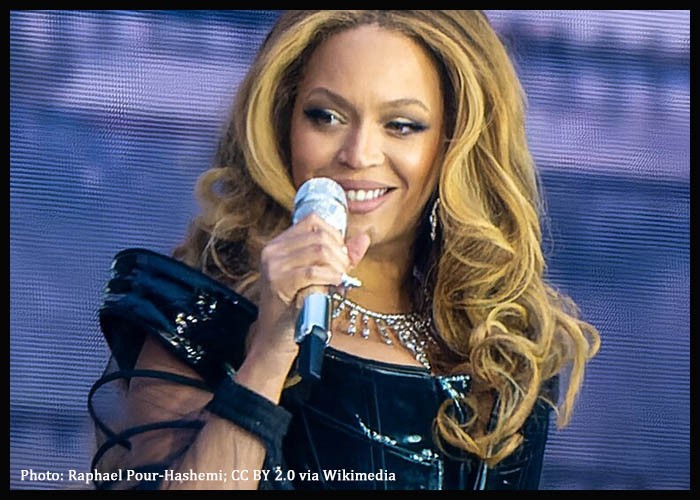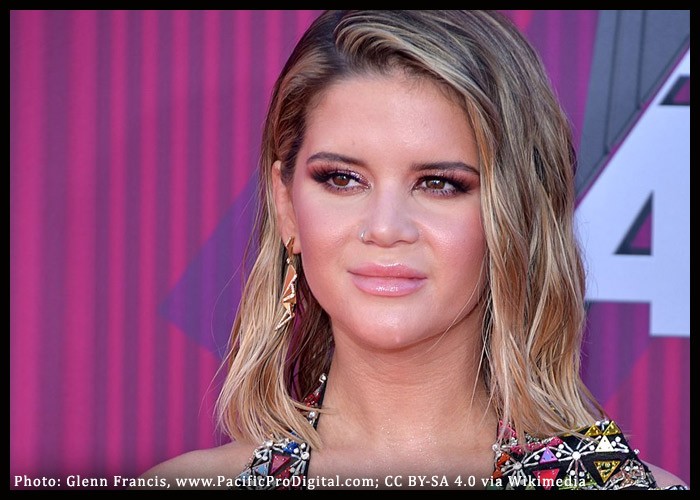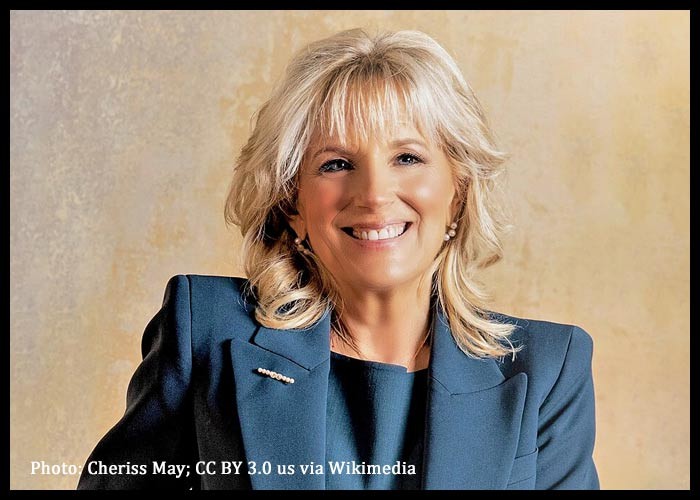
“Life is about the journey, not the destination.”
A cliché that reminds us that it is not the final outcome that teaches us, but the tough nights, the long days, and the ups and the downs along the way that make that final outcome worth it.
For Lady Vol for Life Andraya Carter, her journey is no exception.
She has two degrees from the University of Tennessee.
She is a women’s college basketball color commentator and sideline reporter for ESPN and the SEC Network.
She played for three full seasons on the college team she grew up idolizing.
She continues to carry the torch and live by the Volunteer Creed on a daily basis.
That, however, is not where the story begins.
Carter fell in love with hooping at a young age, guided by her dad and one particular coach who saw greatness in her from the beginning and ignited a dream for her to one day play at the highest level.
“I started playing basketball when I was four,” Carter said. “My dad, Tyke Lhamon, got me into it. I wasn’t very good, but I was incredibly athletic and I was really long. It was actually one of my first school ball coaches—I still keep up with her now. Her name is Pam Overstreet and she, I guess, saw something in me. She told my dad, ‘You need to put her in AAU Basketball.’ I don’t know what she saw in me, but my dad took her seriously. So, he and my mom put me in travel ball. I began playing year around in elementary school, and that’s when I told my parents that I wanted to go to Tennessee.”
A Flowery Branch, Georgia, native, Draya—as she’s known by many teammates, friends and family—starred for Buford High School and her AAU club, the GA Elite.
At both stops, she was mentored and grown by two elite coaches and a set of older, experienced players who allowed her to just play the game.
“I was very fortunate to have an incredible high school coach, Gene Durden. He was a very blue-collar coach (who coached a number of college players),” Carter said. “So, I was very lucky to work with him. He challenged me and made me work hard and appreciate the smallest things about the game. He also showed me he loved me for more than basketball which was really meaningful to me.
“My AAU coach was Tim Ellis, and he was another blue-collar coach. He was absolutely hilarious, very down to earth. We had so much fun playing for him, and he made us work hard but we never hated him for it. That’s a special coach in my opinion. We were the GA Elite and most of the players were two years older than me. When I joined the team most of my teammates were sophomores, and I was in eighth grade. When they were seniors I was in 10th grade, so just playing with that team and learning from those older girls was huge for me. They just protected me and loved on me, and I could just play the game. That’s all they wanted me to do. It was amazing.
“Honestly, that same thing happened my freshman year of high school. Because we had eight seniors on the team, all I had to do was play! They were very fortunate situations for me. To have two incredible coaches and two amazing teams to start high school and really take off with the game of basketball, it doesn’t really get better than that.”
As she perfected her craft on two teams that allowed her to be herself and play her game, Carter grew into the player she strove to become and earned offer after offer to ball at the Division I level. She still, however, had yet to obtain what she had been dreaming of since the age of seven.
Then, during her sophomore year, it finally arrived.
“My first scholarship offer came when I was in eighth grade from the University of Georgia, and a lot of them flowed from that,” Carter recalled. “But Pat (Summitt, the late, legendary Lady Vols coach) didn’t offer me until 10th grade, and 10th grade was when I committed to Tennessee. When Pat stepped down and Holly Warlick was named head coach, I remained steadfast in my decision to be a Lady Vol.”
Fully committed to Rocky Top, Draya finished her high school career, leading Buford to back-to-back-to-back state championships in 2009, 2010 and 2011.
As a senior in 2012, though, she encountered her first road block.
A torn ACL sidelined her for the majority of her senior year. She fought back just in time for a late season playoff run, where she ran into—at the time a seemingly minor injury—obstacle number two.
“I came back in time to finish my senior year, but there was a game where I dove for a ball. I hit the bleachers and my shoulder dislocated. It was fine, it popped back in and I finished the game. But, fast forward to Tennessee. I was playing well. I was starting and I felt like I was at a really good place (in terms of my progress),” Carter said.
“Then, in my freshman year at Tennessee, I went up for a ball in the Miami game, a girl clipped my feet and I landed on my shoulder causing it to dislocate again,” she continued. “From there it was like a snowball of dislocations. I came off a screen in practice, and it dislocated. I was reaching for something in a drill, and it dislocated. It just kept slipping out easier and easier, and it was literally like my shoulder could not stay in place.”
Draya was forced to redshirt. Giving up her first season in Knoxville, she was staring at the prospect of a long recovery.
It wouldn’t be the last of her injuries.
Over the next three years, Draya battled through knock after knock, missing multiple off-seasons and struggling to consistently practice.
Despite the hurdles, she helped lead the Lady Vols to the 2014 SEC Tournament Championship—the 17th conference tournament crown in program history—and back-to-back Elite Eight appearances in 2015 and 2016.
While her life on the court was a bit of a roller coaster ride, Carter was staying busy making the most of her time as a student.
She completed her degree in communication studies in just three years.
She became heavily involved in volunteering and working with the Tennessee School for the Deaf because of her previous involvement with children with disabilities and a decision to take sign language to fulfill her foreign language course requirement.
“When I was in elementary, middle and high school, I worked a lot with the special needs programs that were at the schools. In elementary school I read to the special needs class twice a week.
In middle school it was more of just befriending people with special needs. I would talk to them, hang out with them and spend time with them. In high school it was kind of the same thing. It was always just a field I was interested in.
“(When I was choosing my major) a communications degree was similar to journalism and electronic media. I had to do public speaking and a lot of other similar things. But, my foreign language could be sign language. It was the best of both worlds in that I could learn speaking, having a presence in front of a camera and using my words as a really big tool, while also getting to be a part of the deaf and disabled community.”
The more time she spent with the students of TSD, the more time she was committed to giving. It turned what was initially a volunteer assignment into regular visits twice a week during her first year of grad school.
“I had just started grad school, and I only had four classes,” she recounted. “All of them met on Tuesdays and Thursdays, so on Mondays and Wednesdays I went and taught P.E. classes at the Tennessee School for the Deaf just for fun. I didn’t need to, but it helped me keep up with my sign language, because I wasn’t taking sign language classes anymore. I already had relationships with the kids and it wasn’t something I had to do, but I just had so much fun. I could be having the worst day and I would go there and it would be so great.
“That’s why I always try to stress to people that when you’re picking a school to go to, don’t just base it off the sport or the team. The sport and the team, no matter where you go, you’re going to have the worst days and you’re not always going to want to be around them. So, find a school where there are other things that keep you there. Not just sport.”
During that same year, Draya took part in the first-ever VOLeaders cohort. A new and unique program that was developed to cultivate positive student-athlete leaders through sport to create positive social change.
By using their platform in sport, student-athletes admitted into the VOLeaders Academy learn how to be a positive force for their team, campus, and local and global communities. The program aims to inspire student-athletes to find ways to use their influence and passion for sport to enact change that transcends their athletic success.
“VOLeaders was awesome. Honestly, awesome doesn’t even cover it. It was really a testament to the teachers and leaders in the group—Dr. Sarah, Dr. Ash, Dr. Joe and Caitlin—because it was like we learned together,” she said. “They learned from us. We learned from them, and it was a lot of learning about yourself too. It was just awesome. We had the best conversations. Our group was really close, and I spent a lot of time with them. We also bounced a lot of ideas off of each other, because what’s going on with the tennis team might connect with the basketball team. There are also things that you may not be able to talk to your teammates about, but you may need another athlete’s perspective. It was awesome.”
It was a year of tough, yet rewarding conversations. Conversations that allowed them to be seen as more than athletes.
The 2015-16 academic year concluded, and the inaugural VOLeaders class embarked on a trip of a lifetime to Brazil in the months leading up to the 2016 Olympic Games.
“That trip was so much fun. We worked these huge sport camps in the community. We worked with different communities and different kids, and through sport—even though a lot of them barely spoke any English—it was like we were speaking the same language with them,” Carter said. “All by playing sports. Just playing a game together, it evened the playing field. We felt like we knew the kids, and it felt like we had known them forever, even though we didn’t and didn’t speak the same language. But, somehow, we could connect with them and inspire them. We were learning from them and they were learning from us. It was so fun.”
With the experience of a lifetime in her back pocket, Draya returned from Brazil with her fifth and final year on the horizon and the most difficult decision of her life right in front of her.
To fight through her injuries during one final season in the Orange & White, or to walk away from the game that gave her everything?
“That decision was hard,” Carter recalled. “I talked to everybody. I talked to my parents, my school coach, mentors and so many others. A lot of them were in my corner. A lot of them played devil’s advocate. I talked to my dad a lot. He’s extremely logical, extremely reasonable and almost never does anything out of emotion. I go to him a lot for things. I had a lot of support. I even talked to some of my teammates.
“But, what it came down to ultimately were two factors. One was the type of season it was going to be for me personally, and then two was my future.
“The season for me was going to be practicing two-to-three times per week and playing in games. I was already bothered that I couldn’t get up extra shots and do things in the offseason. I just already didn’t have much confidence in the player I wanted to be vs. the player I was (before the injuries). So, that was hard, because I knew that was only going to get worse.
“Then, I really had to start thinking about if I was going to be the type of pro that I want to be. If I already can’t practice full seasons this season, in five years it’s probably going to be worse. I’m not going to practice at all, I’m probably going to be overseas, probably not on a very good team and not making much money. Or, I could still have a career connected to the game if I wanted to and be home with my family and friends and in the states.”
In the end she decided to walk away, taking inspiration from one of the late greats of the game.
“That was in 2016, which was the same year Kobe retired, and he wrote his letter to basketball,” Carter said. “He said, ‘My mind can take the struggle, my heart can take the grind, but my body says it’s time to say goodbye.’ My teammate Cierra (Burdick) sent that to me, and that was huge in me deciding. Not that I’m Kobe Bryant, but if Kobe can let go of the game and he knows it’s time, then I know it’s time for me to let go too.”
While she was no longer going to be donning the Orange & White on the floor, Carter was by no means saying goodbye completely.
With one year of graduate school still to complete, Draya took it upon herself to challenge her abilities in a new way, taking her talents from in front of the camera to behind it.
“My freshman year, I got really close with (ESPN sideline reporter) Maria Taylor,” Carter said. “She was doing one of our ESPN3 games at Auburn, and I had just had surgery and wasn’t really doing much. I’m a talker at heart, so I went and asked her what she was doing. I introduced myself, she filled me in and we kept a relationship. She was the first one whose brain I started to pick and who got me a little interested in it.
“Then, that year and every year after that at the SEC Tournament I would go on set with them,” Carter continued. “One year they let me put the headset on and let me listen. I would always go and talk to the announcers who did our game. So, Carolyn Peck, I started talking to her. I reached out to Kara Lawson and Debbie Antonelli, and I would just go talk to them. I would look at their game boards. I would see what they were doing. I would ask questions, and after I was back playing again I always made sure to go talk to them. I never thought I would do it, because I thought I was going to play, but I always thought they were cool, so I would just constantly ask questions.”
“When I made the announcement that I was going to stop playing, someone—I want to say Maria, because I went to her house that fall—took me to the SEC studio,” Carter said. “I walked around, met some people and then she and LaChina Robinson as well told me, ‘You speak really well, you give great answers to interviews, you have the look for TV, so you should see if Tennessee will let you do the women’s basketball non-conference home games that are streamed online.'”
She got in touch with VFL Films, who immediately tossed her a set of commentator reigns.
After working through rough beginnings while honing a new craft, she officially popped onto the scene when she called a game that her beloved Lady Vols weren’t even involved in.
“It really didn’t take off until Mississippi State played at Kentucky that year,” Draya said. “One of my old coaches from Tennessee left and went to coach at Kentucky. She called me and asked me to call the game, because the original broadcaster couldn’t make it. I knew the teams, I had just played against them the previous year and this was when Mississippi State was really good and went to the Final Four. So, I told her ‘Yes,’ and I drove to Kentucky the day of the game, did the game and drove back that night.
“The game, if people weren’t watching, it went to overtime, so then they were watching. During that five minutes of overtime everyone was like ‘Who is doing this game?’ ‘Oh, this is Andraya Carter,’ ‘Andraya Carter is doing this game?’ It really just took off from there. Maria messaged me and said, ‘You need to find a way to talk to Pat Lowry. She’s the coordinating producer at ESPN for women’s basketball. If you come to the SEC Tournament, I’ll give you my pass so that you can get in and meet Pat Lowry.'”
Draya met with Lowry in Greenville, South Carolina. What was supposed to be a five-minute meeting turned into an hour-long conversation and an opportunity to watch the conference championship game in the production truck.
She seized the opportunity, impressed ESPN’s lead woman for women’s basketball and landed herself an opportunity to announce games on the national stage.
They started her out slowly with just a few games, allowing her to improve with each passing year, earning more games with every successful broadcast.
She’s even had a number of opportunities to call games for her alma mater and is confident that the program she once played for, is heading in the right direction under its new leadership.
“Tennessee has still meant so much to me since finishing my time in the Lady Vols uniform,” Carter said. “I have such an incredible love for Knoxville—I feel like there’s a piece of me in almost
every place on campus and in the city. I know I made the most of my time there and to be able to stay connected to the program through working for the SEC Network has been so special to me.
“I knew I liked Coach Harper when I called the NCAA Tournament while she was at Missouri State,” she continued. “I watched their practices to prep for the game and was so impressed by how her team listened to her and played their hearts out for her and their program. I’m excited for her to take Tennessee—her former program and mine—in that same direction.”
As she enters her third year of working in broadcasting, Carter continues to draw on the experiences and lessons granted to her by VOLeaders.
“VOLeaders definitely helped me,” Carter said. “One of the things we learned in VOLeaders was how to lead across, how to lead up and how to have confidence in situations where you are at the bottom. So, during my entire time at ESPN and even now, I do still feel like I’m very low on the totem pole. Not because people make me feel that way, but because I’m the youngest one. I don’t have as much experience, and I don’t know it all.
“I learned a lot about how to be comfortable making suggestions and being comfortable leading, even when I’m not at the top. So, when I have something that’s good, I have the confidence to talk about it and if I don’t understand something, I have the confidence to ask for clarification. I can lead from wherever I am. I can be a leader and make an impact, and that’s a really, really big deal for me. Just having that confidence, feeling important and feeling valued.”
She’s learned how to lead from any position. She battled and fought her way through numerous obstacles. It was the journey and experiences that brought value to her life that molded and carried her to the position she’s in now.
As she moves forward in her career, she hopes to use the biggest lesson UT taught her to bring value to the lives of current student-athletes as they work through their own respective journeys through the game of life.
“I do try to encourage all of the athletes that I speak with when I go to SEC games, and I’m always asking them what they’re doing outside of basketball,” Carter said. “I value that stuff. I have so much more value in the athlete as a person, because I was valued as a person in VOLeaders, and I want to make other athletes feel valued as people, not just athletes. For example, Rennia Davis is one of the best basketball players in the nation, no doubt about it, but she’s also a really amazing person and for me as an analyst or sideline reporter, I’m going to try and find a moment to talk about that during the game. I want other people to know that, but I also want her to know that.
“That’s just one example but it applies to so many athletes. Sport connects people, it helps bridge gaps between people. Sport helps open doors that might not have been there before, but at the end of the day all athletes are still people. And a lot of them are amazing players and people. I learned that first hand in VOLeaders, and it’s stuck with me so much ever since. VOLeaders was critical in everything I did during my last season in a Tennessee uniform and everything I’ve done since hanging my jersey up for good.”


















